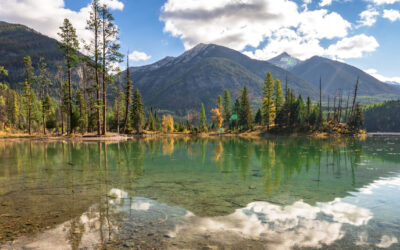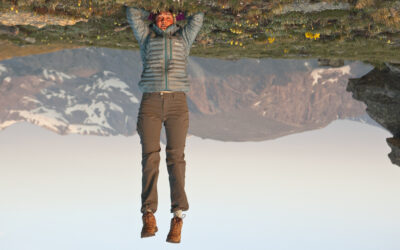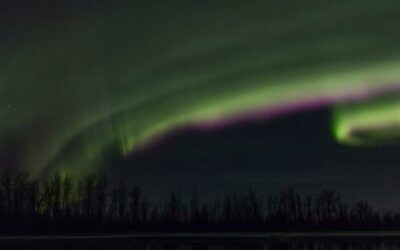Photo by ĐÔ NGUYỄN from Pixabay.
Reaching Nature “Through the Noise”
Editorial Perspectives
August 2022 | Volume 28, Number 2
Wilderness and wildlands are often epitomized by their opportunities for solitude. They can be vastly quiet places where nature’s sounds dominate the landscapes. Their remoteness gives humans the opportunity to take time away from society and find respite, recovery, and rejuvenation. Wilderness and wild places provide a contrast to the “noise” of modern society.
The global COVID-19 pandemic has given us a new perspective on society’s “noise”. For extended periods, we witnessed the halt of activity in urban and rural areas across business, tourism, and recreation sectors. Society slowed down. However, this did not come without consequences and impacts. Many individuals have struggled through quarantines, restrictions, isolation, and personal loss. During these immensely challenging circumstances, individual sought out parks, forests, and wildlands to escape, to address their physical and mental health, and to interact with other people once again socially.
As the pandemic moves into a new phase, elements of our daily life are coming back. Dining, entertainment, transportation, travel, and production are all moving towards a new type of “normalcy”. The noise of human society is returning in many places. But for many, life is not back to normal. In the United States, the federal government acknowledged over 1 million deaths related to COVID-19. The pandemic is still unequally impacting many people worldwide as outbreaks and different stages occur. Global gas prices are rapidly increasing. Inflation is straining family budgets. The conflict in Ukraine continues to expand a global humanitarian crisis. While society has returned, the “noise” has returned in an increasingly challenging way.
Unfortunately, crises and conflicts are not new phenomena. But current conditions have created a new “noise” that jeopardizes the newly emerging value of nature and wild places people discovered during the pandemic. This noise threatens the growth of advocacy and action among younger generations and new constituencies. It dominates individual’s priorities and influences their capacity for engagement. And this noise distracts individuals from recognizing the role nature can have in their daily physical and mental well-being.
We must seize on this opportunity to recognize the worth of nature, wilderness, and wild places as an antithesis to the noise. Many individuals have experienced the benefits and worth of nature in our global community. They have been exposed to the great and vital role it plays in our lives. We sought out nature’s solitude during one of the most difficult times in many of our lives. We should recognize this opportunity moving forward to create a community where nature is vital and critical to everyone’s well-being.
In this issue of IJW, Rebecca Rasch finds wildland advocates in unexpected places. Elena Thomas, Williams Rice, Jenn Thomsen, Jaclyn Rushing and Chris Armatas investigate constraints to wilderness recreation. Tina Tin documents wilderness area visitation during the COVID pandemic. And Marcus Hall, Wilko Graf von Hardenberg, Tina Tin, and Robert Dvorak reintroduce the Wilderness Babel project.
About the Author
ROBERT DVORAK is editor-in-chief of IJW and professor in the Department of Recreation, Parks, and Leisure Services Administration at Central Michigan University: email: dvora1rg@cmich.edu
Read Next
Wildland Advocates in Unexpected Places
The concepts of “shared stewardship” or “collaborative management” can be challenging. They require shared vision, definition of clear roles and responsibilities, and commitment to the collaborative process.
Constraints to Wilderness Recreation: A Scoping Review of Existing Research
Brazil’s long-distance trails (LDT) are the descendants of historical routes of travel for indigenous peoples that date back thousands of years.
Wilderness and Traditional Indigenous Beliefs: Conflicting or Intersecting Perspectives on the Human–Nature Relationship?
Brazil’s long-distance trails (LDT) are the descendants of historical routes of travel for indigenous peoples that date back thousands of years.



